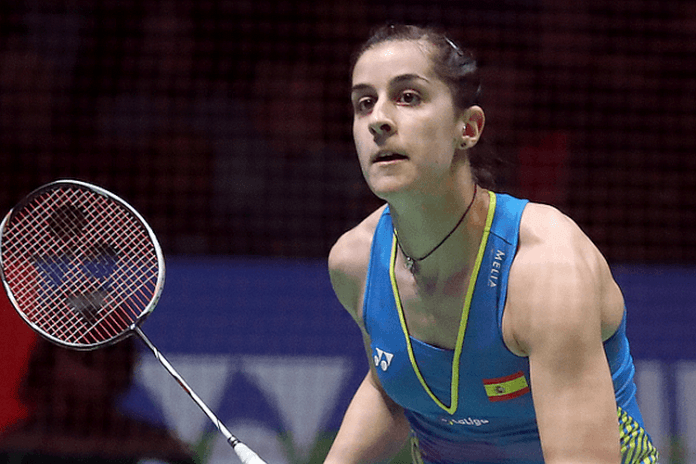Last week was a great one for Russian sport … until the news began leaking out about a possible calamity.
Russia hosted the men’s World Boxing Championships and won three of the eight weight classes, dominated – as usual – the World Rhythmic Gymnastics Championships, taking all five individual events and the team title, and then finishing off a brilliant World Wrestling Championships with nine golds, including five wins in the men’s Freestyle division.
But Hajo Seppelt, head of the German ARD television team that helped break the Russian doping scandal wide open back in December 2014, tweeted late Friday that the World Anti-Doping Agency suspects that Russian authorities may have “manipulated” the long-sought data bank from the Moscow Laboratory where the 2011-15 national doping scheme was managed:
ARD Doping Editorial Team Breaking News: RUS under suspicion to have manipulated Moscow lab data (provided to @wada_ama early 2019). @wada_ama Compliance Review Committee will inform WADA Exco at Tokyo meeting next week. „Non Compliance“ procedure already initiated. @NickJMButler
— Hajo Seppelt (@hajoseppelt) September 20, 2019
Seppelt further tweeted on Sunday concerning a report from the Danish agency SportsPressen that Michael Ask (DEN), the chair of the 67-member Institute of National Anti-Doping Organizations (iNADO), had been told by WADA that the Russians had been asked – within three weeks – to “explain the inconsistencies.”
In the SportsPressen story, Ask states (per Google Translate):
“I was informed by WADA about the case last Friday, where I was told that the agency has initiated a process which means that Russia has now been given three weeks to answer WADA’s questions about the inaccuracies in the Russian doping data provided, which the agency’s data experts have found. …
“I do not want to finally decide on the possible consequences at this time. But of course, WADA should of course exclude RUSADA again. And maybe one should also punish the country as a whole and not just the national anti-doping agency.
“Of course, even though the doped Russian athletes themselves have a responsibility and must be punished for cheating their pure competitors, in this case there is also a responsibility in Russia’s political system. But the pendulum also points back to the IOC, which in its time was opposed to punishing Russia collectively.”
Conveniently, a WADA Executive Committee meeting will be held in Tokyo (JPN) on Monday (23rd), followed by another on 4 November. The process for monitoring the Russian situation starts with WADA’s Compliance Review Committee, the group that controversially recommended Russia’s reinstatement back in September 2018, which will then forward any comments or suggestions to the Executive Committee.
What now?
The only thing that is sure is that the process will be deliberate. What is helpful is that the relevant regulatory bodies are all in motion and meeting soon:
● 23 September ~ WADA Executive Board in Tokyo (JPN)
● 02-04 October ~ IOC Executive Board in Lausanne (SUI)
● 30 Oct.-1 Nov. ~ IOC Coordination Commission meeting in Tokyo (JPN)
● 04 November ~ WADA Executive Board in Katowice (POL)
● 03-04 December ~ IOC Executive Board in Lausanne (SUI)
So, the three-week period for a response from Russia will end about 8th of October, leaving plenty of time for the issue to be reviewed and resolved and acted upon by both WADA and the International Olympic Committee with regards to the 2020 Tokyo Games.
While WADA will do the heavy lifting, all eyes will be on the International Olympic Committee, which has had a decided lean toward Russia:
● 2016 Olympic Games: On 18 July, the World Anti-Doping Agency released the first edition of the McLaren Report, which described in detail the doping scheme used by Russia to maintain the eligibility of its athletes from 2011-15. WADA suspended Russia, but on 24 July – just 12 days prior to the start of the Rio Games – the IOC decided to allow Russian competitors at the Games with eligibility to be decided by the International Federations. Of a total of 389 athletes submitted, 278 were allow to compete.
● 2018 Winter Games: Russia was suspended by the IOC and a procedure set up to allow “neutral” athletes from Russia to compete. The sanction was announced on 5 December 2017 and the Winter Games started on 9 February, 66 days later. A total of 168 Russian athletes were allowed to compete.
The difference now is that the issue has popped up well in advance: the Tokyo 2020 Games won’t start until 24 July.
The recently-released WADA Annual Report noted that “The significant progress that has been made in relation to the retrieving by WADA of the data and samples from the Moscow Laboratory would not have happened without the September 2018 ExCo decision. Time has shown it was the right decision for the good of athletes and clean sport.”
Now those who made this decision will face the same strategic questions as before:
(1) Should Russia be suspended as non-compliant once again?
(2) What about the much-praised current status of the Russian Anti-Doping Agency, directed by Yury Ganus?
(3) Even if WADA suspends Russia again, will the IOC fo9llow and what of the international federations, almost all of whom – excepting athletics and weightlifting – allowed Russia to compete en masse in 2016?
(4) The International Paralympic Committee banned Russia en toto for its 2016 Games and 2018 Winter Games; what will its stance be for Tokyo?
Along with the IPC – which did not reinstate Russia until 15 March of this year – the International Association of Athletics Federations (IAAF) has been the toughest on Russia and continues to hold the Russian Athletics Federation on suspension. The IAAF will meet in advance of its World Championships in Doha (QAT) this week and is not expected to reinstate Russia, especially with the additional news from last Friday.
All of this comes against the background of continuing scrutiny of 298 athletes identified by WADA as having “suspicious data,” with the evidence sent on 2 July to the relevant international federations for their follow-up. What about that data?
It’s a mess. There are no winners here, only losers, but no one knows who the losers will be yet, since the extent of the data “manipulation” has not been defined.
But it’s a headache that WADA, the IOC and the Russian Anti-Doping Agency did not want. But we have it and now it has to be dealt with. The Olympic Movement appeared to be past this damaging chapter in its history, but now must agree with the famous line spoken by Al Pacino, as Michael Corleone in “The Godfather: Part III” (1990):
“Just when I thought I was out, they pull me back in.”
Rich Perelman
Editor
If you enjoyed this commentary, sign up to receive our TSX Report e-mail by clicking here. You can also refer a friend by clicking here.


























